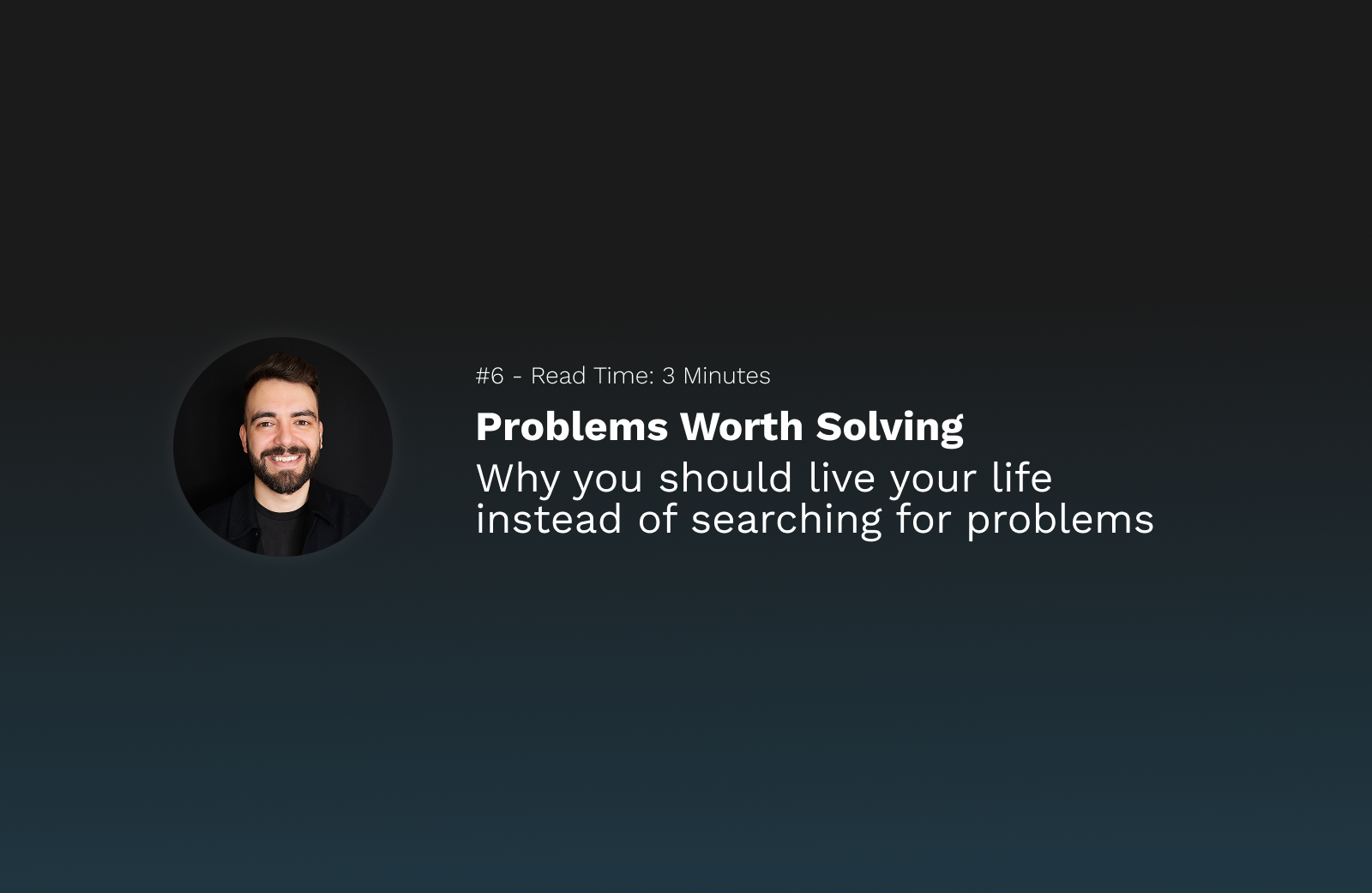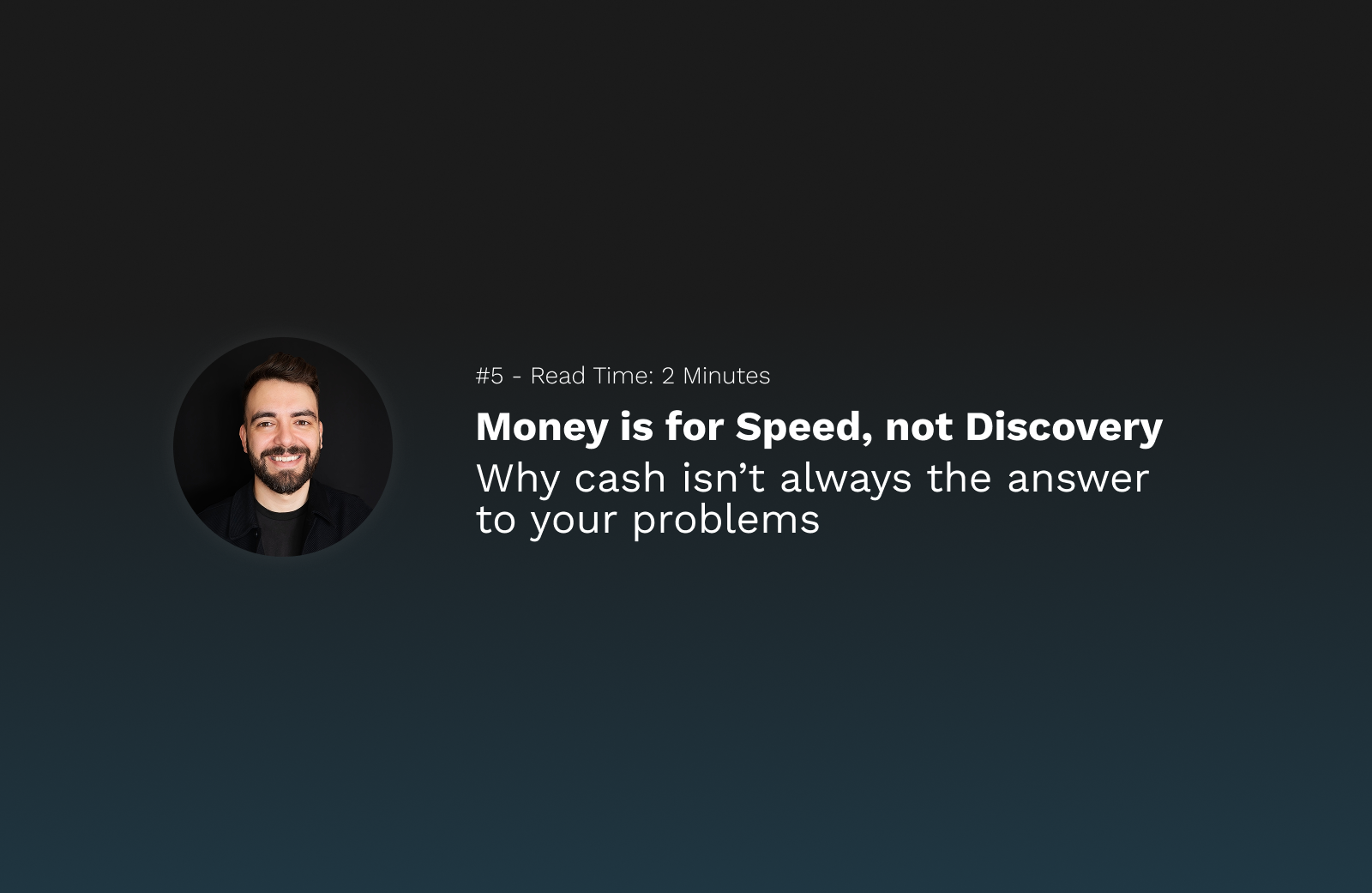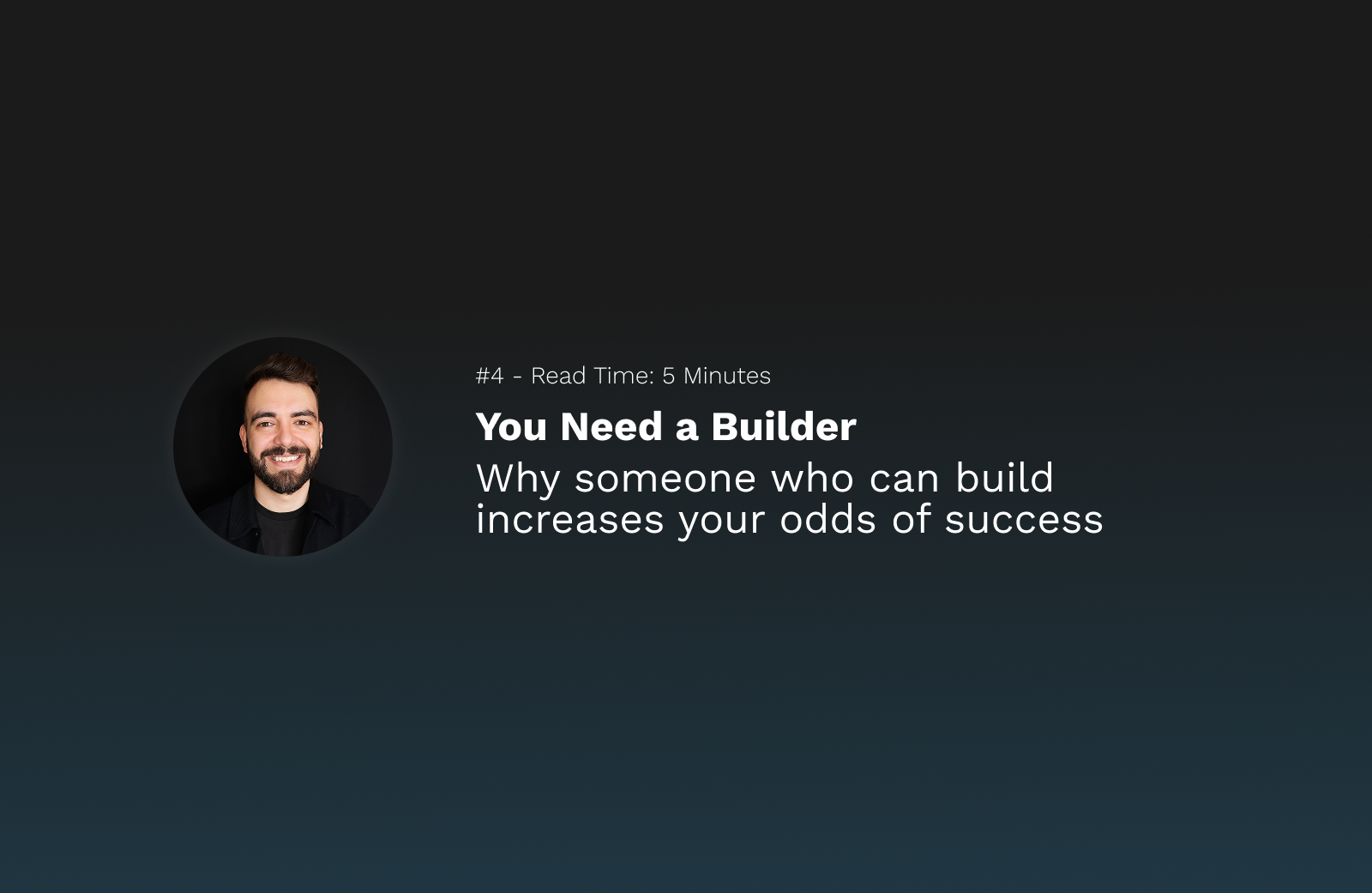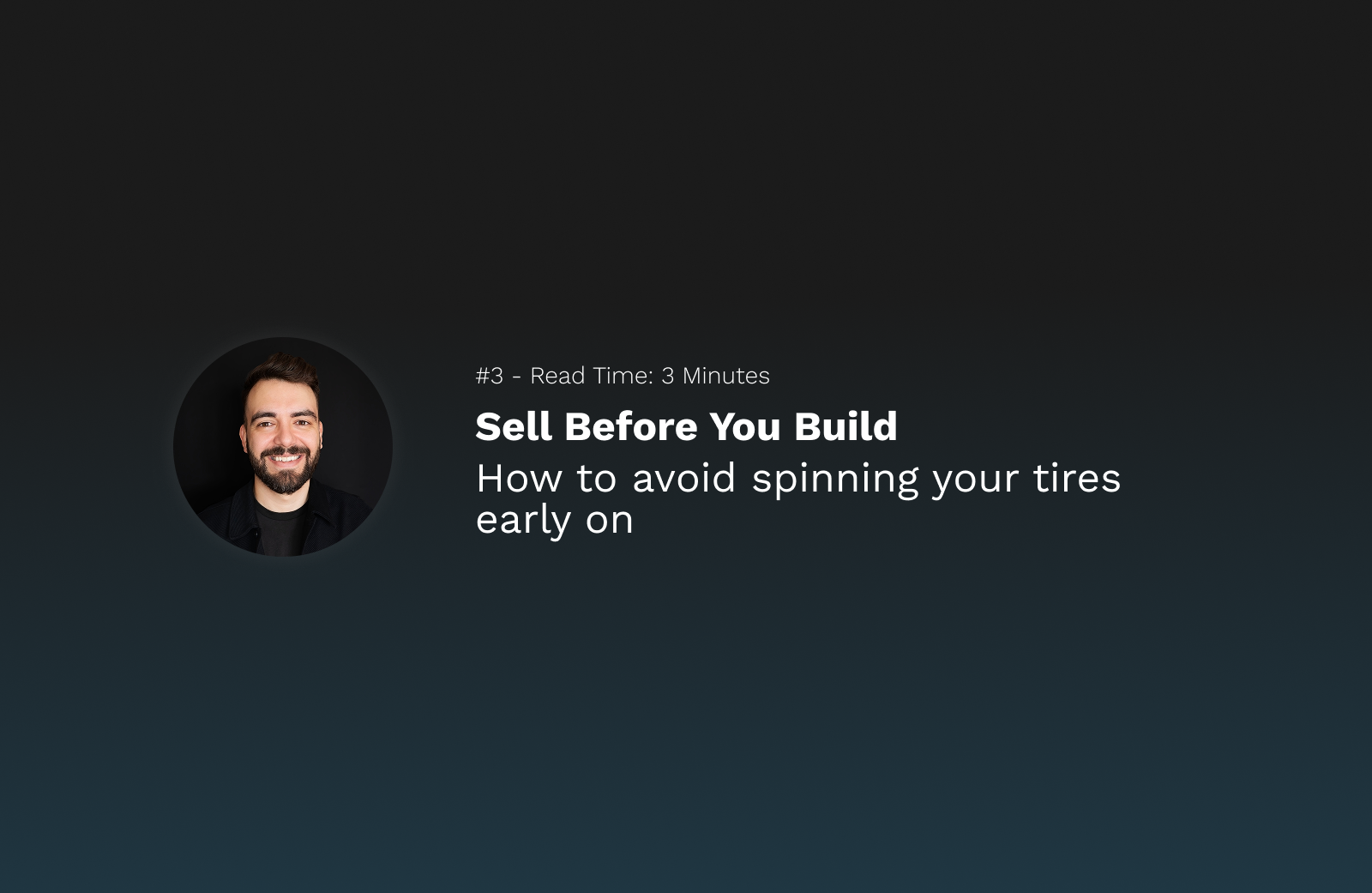Starting at Zero
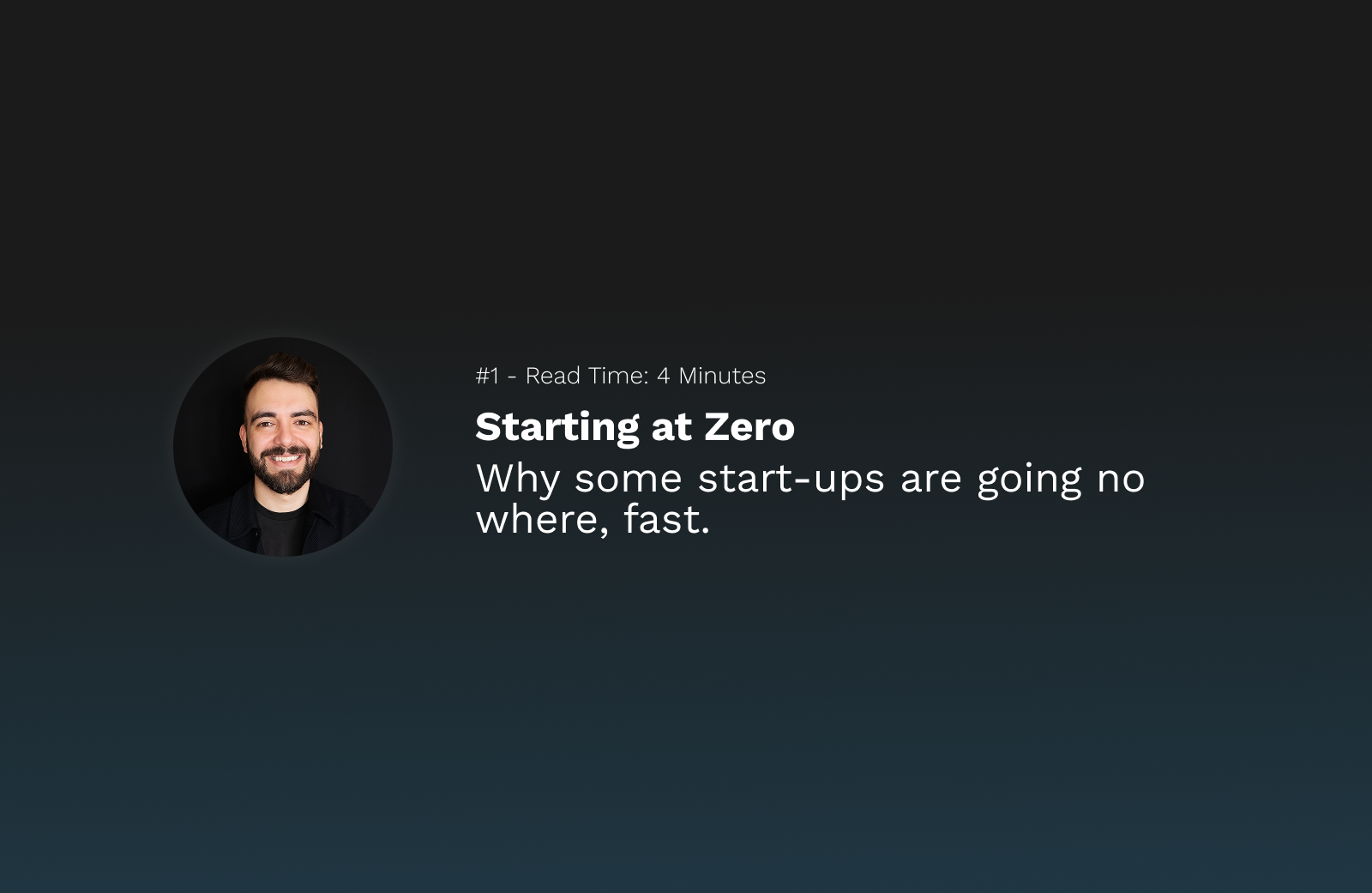
With a bit of practice, you can spot the teams that aren’t going anywhere.
Not because they’re not talented.
Not because their idea isn’t good. Not because they didn’t say the right things.
Because they’re starting at a massive, unnecessary disadvantage.
Fortunately, most of these things are avoidable - if founders take care to solve them.
#1. They can’t build
No matter what product it is, building will be the single biggest expense.
If you can’t build internally, you have to pay someone else to build it.
You are forced to invest your own money (or worse, someone else's).
This eventually leads to a “death spiral” where:
- You need money to build product
- You need traction to get money (revenue/investment)
- You need product to get traction
See the issue?
The only thing that pulls you out of this is someone building for free.
If you can’t build your product without hiring or raising capital in 2025 (vibe coded or not), you should seriously rethink who is on your founding team.
Solution: Find someone who can build and you can work with. Give them a stake. Ensure they share your values and passion for solving the problem. If they don’t care about what you’re building, they’ll leave when it gets hard and go build something else (because they can).
#2. They have a product vision, not a problem vision
Founders want to talk about what they can build. The possibilities are endless. They rarely talk about what purpose it serves.
Why it needs to exist.
They think this is about assembling and putting it on a shelf.
They want to build a better widget.
They have no line of sight on the world they want to create.
There is nothing wrong that they are trying to correct.
They have no compass to use when what they build inevitably fails to deliver the results they expect.
You need a compass, because you will need to change direction eventually.
Solution: Forget about market size. Forget about $100 million dollar exits. Find a part of the world you care about and are deeply unsatisfied with. Odds are you are not alone. If you are motivated to make a meaningful change, you will persevere through the lows (and lows are inevitable).
#3. They’re obsessed with the competition
There’s a person. You know them.
We all knew someone like this at one point (likely in high school).
They say things like “If I only had a chance, I could show {insert name} that I am better than {insert partner name} or “I can’t believe {insert name} is dating {insert partner name}.”
There’s a start-up version of that.
They say things like “This company is stupid. Their software is garbage.” or “Our app will be so much easier to use, people will never use their software again.”
Same same.
Your competitors aren’t stupid. They’re successful.
You aren’t going to beat them because you’re better at doing what they do. You probably won’t be.
You’re going to beat them because the world is changing and what they have to offer isn’t what the world is looking for (and what you have is - hopefully).
If you’re building something worth building, your competitors are not a good barometer.
Solution: Forget about who you think your competitors are. You’ll spend weeks researching companies and pivot in 6 months anyway. It’s a distraction for now. If you’re talking to the market, you’ll learn about your competitors organically (and their flaws). Focus on finding a problem worth solving and solving it.
#4. They are thinking about yesterday.
Humans are biased to their own experiences. As founders, you’re going to favor what you know.
But what you know has already happened.
The world moves on.
Things change quickly.
Things are changing quicker than ever.
If it takes you 2-3 years to build the and scale perfect tool you needed a year ago (or more) … How different does the world look?
This is heavily related to #2.
Solution: Take a moment and think about where the world is heading. What’s your bet? It should probably be a big bet. Then plan accordingly. Make sure that your plans get better, stronger, more sound if your bet is true. Is it a gamble? Yes. This is all a gamble.
#5. They are outsiders
You need to convince strangers to take a risk on you and your product.
The less you trust someone, the more risk you take on by having them involved in your life.
As an outsider, you can only fake it.
And people are really, really good at spotting fakes.
If you don’t speak their language, talk their talk, relate to their experiences you are going to struggle.
You will learn, with enough interactions - but it will be a slog.
This is not always a deal breaker, but it is a weight vest.
You would move faster if you didn’t have it on.
No amount of marketing jargon, branding exercises, or strategy sessions will help you if you’re not genuine.
It’s easier to read as genuine when you’re already on the inside.
Solution: Ask yourself, honestly, are you the person to build this? Are you in a position to compete? What advantages do you have? You can build anything - don’t limit your success by focusing on something that seems like a good opportunity but doesn’t suit who you happen to be.
What about {company name}? They had this problem and survived.
Yes. Probably.
You may be able to point out an example of a wildly successful company for each of these. I would not be surprised.
There are tens, hundreds, thousands of examples of companies that weren’t so fortunate.
You don’t hear about them, because no one talks about them.
The point is that these things are avoidable. They are easily addressed at the outset.
There are few things that will make a bigger difference to your overall success as a founder than solving these problems.
The sooner you do, the better your odds are.
Until next time.
- J

